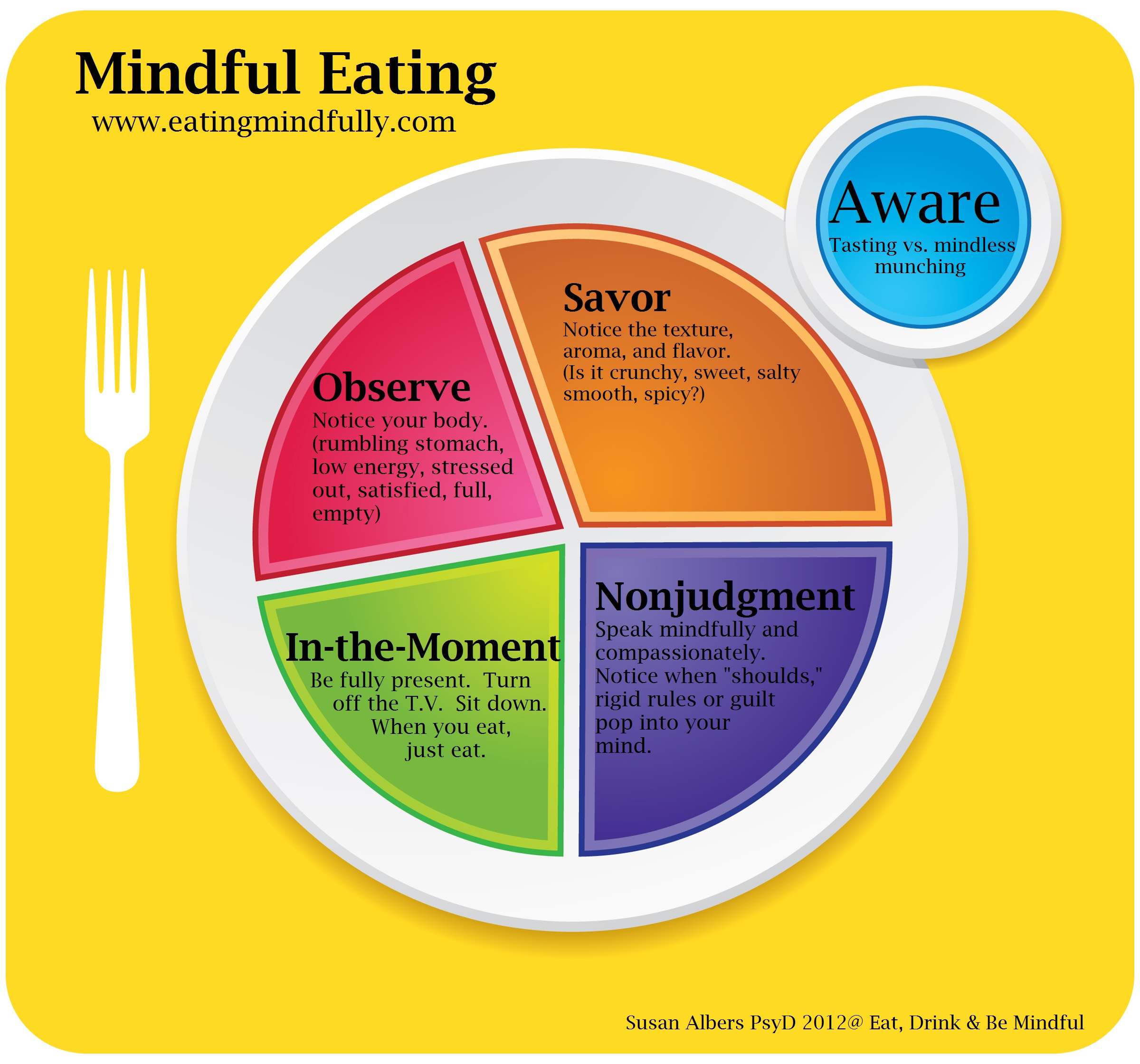Benefits of Mindful Eating
Mindful eating is a practice that involves paying full attention to the experience of eating and being present in the moment. It is a way of eating that focuses on the senses, thoughts, and emotions associated with food. This article explores the numerous benefits of mindful eating and how it can positively impact our physical and mental well-being.
Improved Digestion
One of the key benefits of mindful eating is improved digestion. When we eat mindfully, we are more aware of our body’s hunger and fullness cues, allowing us to eat until we are satisfied, but not overly full. This can prevent common digestive issues such as bloating, indigestion, and discomfort.
Weight Management
Mindful eating can also be a powerful tool for weight management. By paying attention to our body’s signals of hunger and fullness, we can avoid overeating and make healthier food choices. This can lead to a better balance of energy intake and expenditure, ultimately supporting weight loss or maintenance goals.
Reduced Emotional Eating
Emotional eating refers to the habit of using food to cope with emotions, such as stress, sadness, or boredom. Mindful eating helps us develop a greater awareness of our emotions and the triggers that lead to emotional eating. By practicing mindfulness, we can learn to respond to our emotions in healthier ways, reducing our reliance on food for emotional comfort.
Enhanced Enjoyment of Food
When we eat mindfully, we savor each bite and fully appreciate the flavors, textures, and aromas of our food. This can enhance our overall enjoyment of meals and make the eating experience more pleasurable. By slowing down and truly experiencing our food, we can develop a deeper connection with what we eat and cultivate a greater sense of gratitude for nourishing our bodies.
Improved Blood Sugar Control
Mindful eating can also have a positive impact on blood sugar control, particularly for individuals with diabetes or pre-diabetes. By being mindful of the types and quantities of food we consume, we can make more informed choices that support stable blood sugar levels. This can help prevent spikes and crashes in blood sugar, promoting better overall glycemic control.
Reduced Stress and Anxiety
Practicing mindful eating can also help reduce stress and anxiety. By focusing on the present moment and the act of eating, we can shift our attention away from stressful thoughts and worries. This can create a sense of calm and relaxation, allowing us to fully enjoy our meals and nourish both our bodies and minds.
Enhanced Body Awareness
Mindful eating encourages us to tune in to our body’s physical sensations and cues. By paying attention to how different foods make us feel, we can develop a greater understanding of our individual nutritional needs. This heightened body awareness can empower us to make choices that support our overall well-being and align with our unique dietary requirements.

Mindful eating offers a multitude of benefits for both our physical and mental health. By practicing mindfulness during meals, we can improve digestion, manage weight, reduce emotional eating, enhance enjoyment of food, control blood sugar levels, reduce stress and anxiety, and develop a deeper connection with our bodies. Embracing mindful eating as a regular practice can lead to a healthier relationship with food and a greater appreciation for the nourishment it provides.
Frequently Asked Questions – Benefits of Mindful Eating
1. What is mindful eating?
Mindful eating is the practice of paying full attention to the experience of eating, including the taste, smell, and texture of food, as well as the thoughts and emotions that arise during the process.
2. What are the benefits of mindful eating?
Mindful eating can help improve digestion, promote healthier food choices, reduce overeating, manage weight, and enhance overall well-being by fostering a better relationship with food.
3. How does mindful eating improve digestion?
When we eat mindfully, we tend to eat more slowly, chew our food thoroughly, and pay attention to the body’s hunger and fullness cues. This can aid in better digestion and nutrient absorption.
4. Can mindful eating help with weight management?
Yes, mindful eating can support weight management by helping us become more aware of our body’s hunger and fullness signals, preventing overeating, and promoting a healthier relationship with food.
5. Does mindful eating reduce emotional eating?
Absolutely! Mindful eating encourages us to be aware of our emotions and the triggers that lead to emotional eating. By practicing mindfulness, we can develop healthier coping mechanisms and make conscious choices rather than turning to food for comfort.
6. How does mindful eating benefit mental health?
Mindful eating can improve mental health by reducing stress, anxiety, and depression. By focusing on the present moment and savoring the food we eat, we can cultivate a sense of calm and contentment.
7. Can mindful eating improve our relationship with food?
Yes, mindful eating can help us develop a healthier relationship with food. By becoming more aware of our eating habits and the sensations associated with eating, we can let go of guilt or judgment and enjoy food without restrictions.
8. Does mindful eating enhance the enjoyment of food?
Absolutely! Mindful eating encourages us to savor each bite, appreciate the flavors, and fully engage our senses while eating. This can enhance the overall enjoyment and satisfaction we get from our meals.
9. Can mindful eating help with portion control?
Yes, by practicing mindful eating, we become more attuned to our body’s signals of hunger and fullness. This helps us recognize when we are satisfied, preventing us from overeating and promoting portion control.
10. How can I incorporate mindful eating into my daily life?
You can start by eating without distractions, such as turning off the TV or putting away your phone. Chew your food slowly, savor the flavors, and pay attention to your body’s cues. Practice gratitude for the food you eat and be mindful of your emotions and thoughts during meals.




